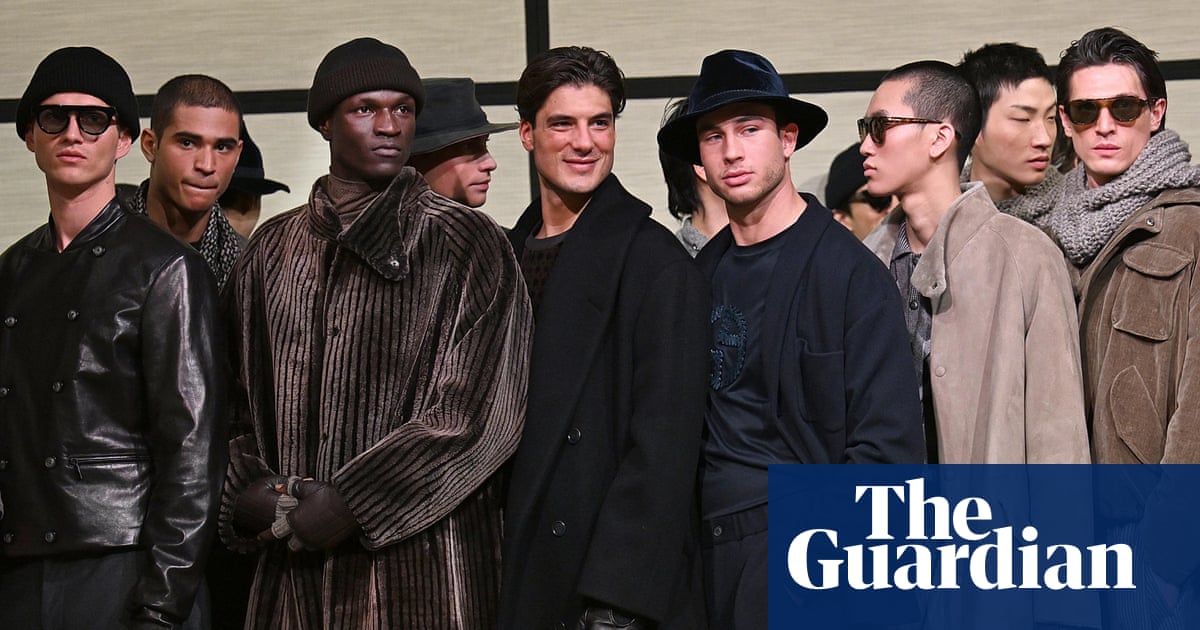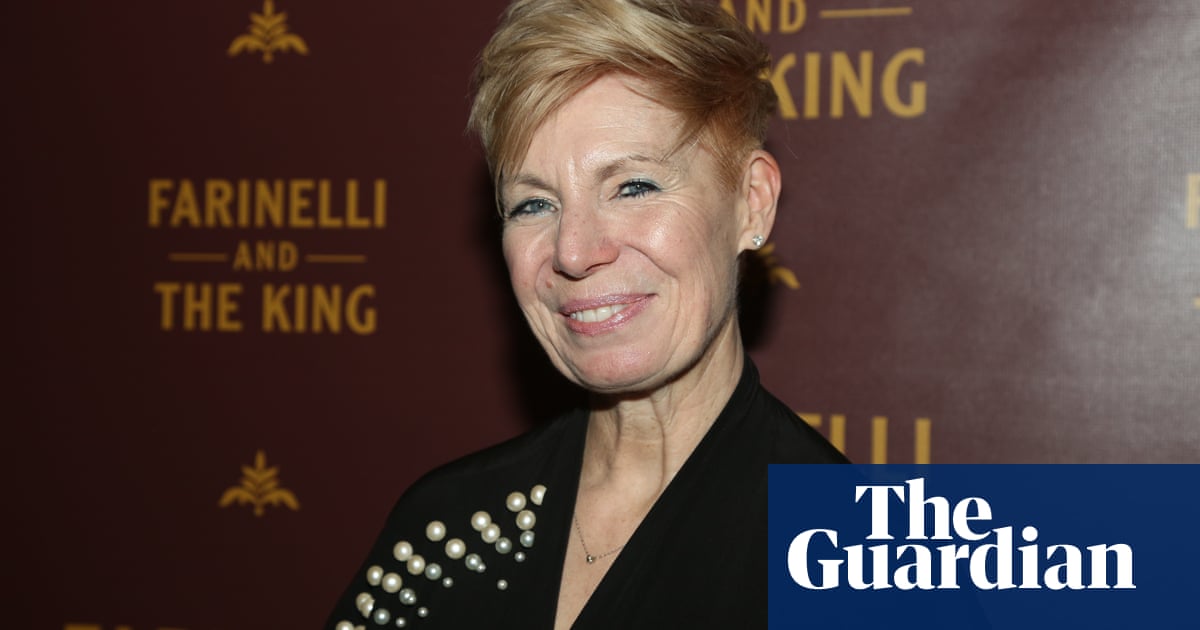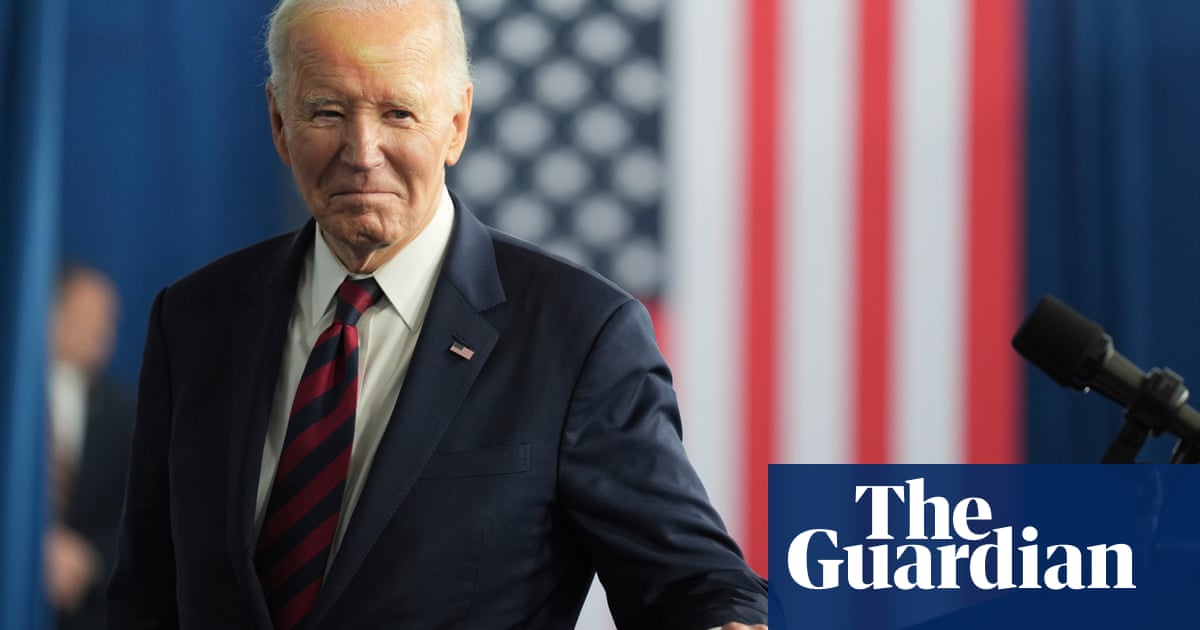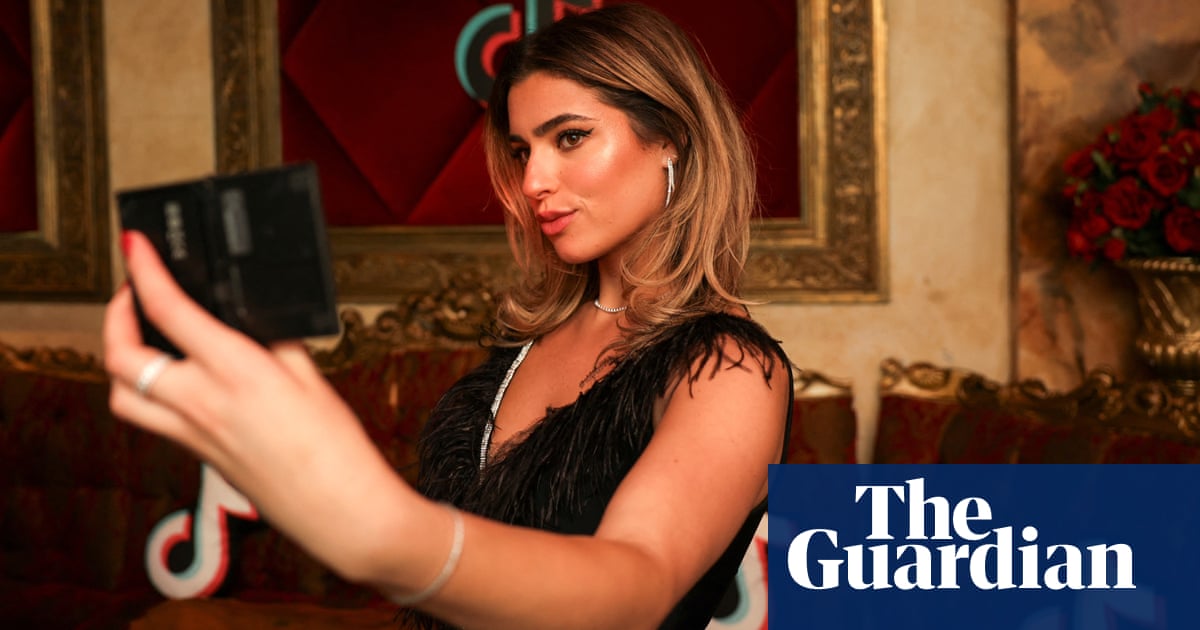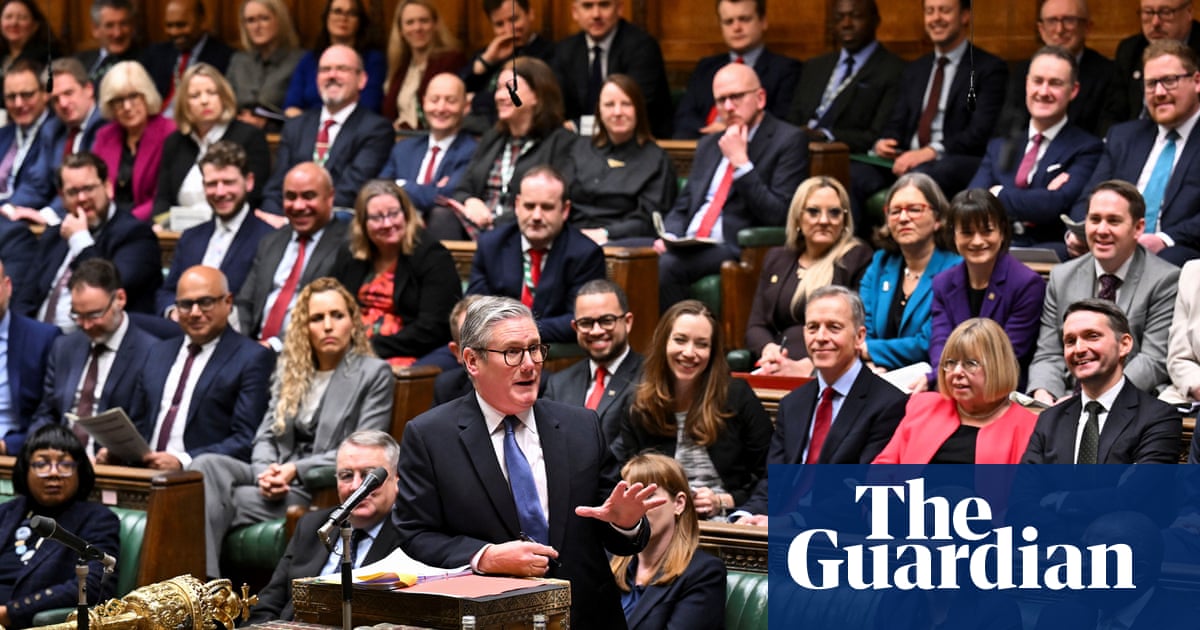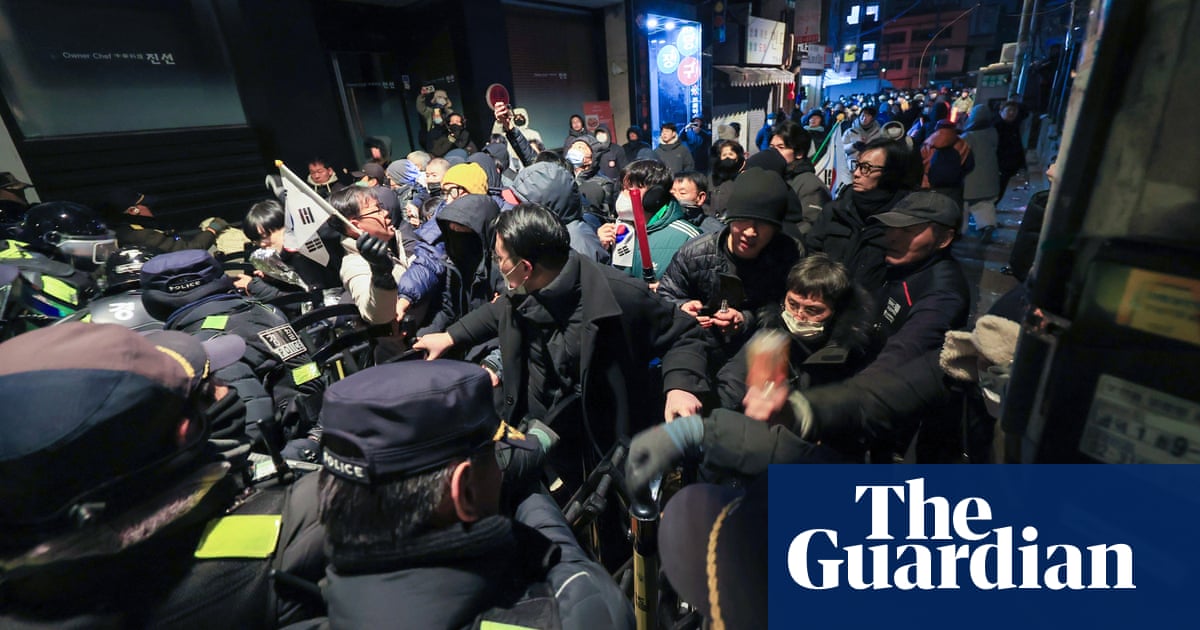Hello and welcome to The Long Wave. This week, I had a chat with Lauren N Williams, the deputy editor for race and equity at the Guardian US, about the country’s election results and the role Black voters played. I wanted to discuss the reported swing among Black voters to Donald Trump, which seemed pretty significant. However, talking to her made me see things from a different angle. But first, the weekly roundup.
Weekly roundup

Barbados PM invites Trump for climate talks | At the UN’s Cop29 climate summit in Baku, Azerbaijan, Mia Mottley told the Guardian that she would “find common purpose in saving the planet” with the president-elect of the US. Trump’s re-election has aggravated fears about the future of climate action.
Malcolm X family sues over assassination | The family of Malcolm X have filed a $100m federal lawsuit against the CIA, FBI and New York police department over his death. The lawsuit alleges that law enforcement agencies knew of the plot to assassinate the civil rights leader in 1965 but did not act to stop it.
Kenyans embrace standup comedy | Comedy is booming in Kenya, with new venues and a fresh wave of standups picking up the mic. As our east Africa correspondent, Carlos Mureithi, reports: “Topics encompass daily life and the entire range of challenges that beset the country … as performers tap into the power of standup to make people laugh about their difficulties.”
Steve McQueen reveals cancer treatment | The Oscar-winning film director and artist Steve McQueen underwent treatment for prostate cancer in 2022. The Blitz producer, whose father died of the disease in 2006, has helped raise awareness of the higher risk of prostate cancer among Black men, and directed a short campaign film, Embarassed.
Evaristos connect at Rio book festival | The British Booker prize-winner Bernardine Evaristo and Brazil’s most celebrated living Black author, Conceição Evaristo, met for the first time at Festa Literária das Periferias in Rio de Janeiro last Wednesday. The two Evaristos, who are unrelated, spoke on a panel discussion about their shared surname and its ties to Brazil and the transatlantic slave trade.
In depth: A Black political shift – math or myth?
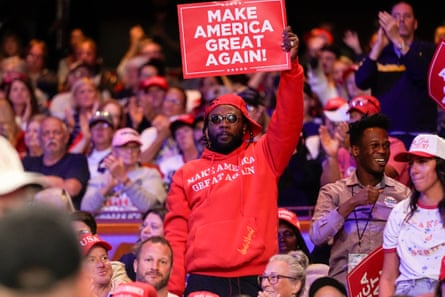
The headlines seemed clear: Trump’s support among Black voters had soared. In the US election this month, some media reported that he doubled his share of the Black male vote and won more Black voters than any other Republican in almost 50 years. This was history! Well, not quite, Lauren N Williams tells me. “The numbers overall are almost identical to how people voted in 2020,” she says. According to exit polls, Black voters turned out for Harris at 85%, and for Joe Biden at 87%. The only real difference is that the number of Black men who voted for Kamala Harris dropped slightly, while Black male Trump support increased slightly from 19% in 2020 to 21% in 2024. But, she says, more than 7 million fewer people voted for Harris than Biden. While Trump picked up more Black male voters than he did back then – a detail heavily emphasised in media coverage before and after the election – the prevailing narrative does not account for the fact that: “It’s not only this switch to Trump,” Lauren says. People stayed home, or people voted third party. If you don’t look at the whole picture, then yes, you arrive at the narrative that Black people are swinging one way.”
Why was this contextualisation missing from post-election analysis? Because it doesn’t make for a sexy story. “It’s really interesting to people when you have a character like Trump and he attracts folks who you wouldn’t normally think would be into his policies and persona,” Lauren says. “It’s typical that white male voters vote for him overwhelmingly – but what’s not typical is when people of colour do so. For a lot of news media, that is a really attractive story.”
I asked her about the viral clip of Barack Obama scolding Black male voters for seemingly not turning out as strongly for Harris as they did for him when he ran. Even I flinched when I saw it, and thought, wow, the Democrats must really be in trouble. But, according to Lauren, the emergency button on that narrative had so constantly been pressed by poll analysts (a narrative that, if I may, the Guardian avoided), that even the Democrats panicked and fell for it, sending Obama to “finger-wag” at prospective voters.
‘Complicating the narrative’

It’s still interesting to me that a candidate like Trump, with his record on racism, could win over more Black men, even in context. But Lauren calls my attention to a far bigger and more interesting story that has been reduced to a footnote of the election: Harris won almost the entire Black female vote. “If you had white women voting 90%-plus for a candidate, you would not hear the end of that story. It would be endlessly curious and interesting and fascinating. We lose a lot by not applying that same level of curiosity to the ways that other demographics vote.” I can see that this also applies to Black men, three-quarters of whom still voted Democrat. “This story could have been ‘look at the power that Black voters wield’, but that’s just not the American narrative.”
And what we lose is a big deal. By writing off those who voted for Harris as doing so simply out of blind loyalty, the reasons for Trump’s victory risk becoming detached from reality. Another broad headline after the election was that there was actually nothing sinister going on – it was “just” the economy. But the Black people who voted for Harris are disproportionately working class, Lauren says, and have made informed decisions despite their economic status because they are accustomed to making compromises and always thinking about “the greater good”. “In the discussions that a lot of the media has about the working class, the undertone is that they are only talking about the white working class”, because considering Black voters as part of the American working class “complicates the narrative”. People would have to reckon with the fact that “Black Americans who experience disfranchisement and a huge racial wealth gap were not wooed by this idea of economic anxiety”.
Anti-racism has fallen out of fashion

“Complicating the narrative” raises the question: why is it that white people are seemingly more anxious about the economy than Black people who are less well off? There is little interest in the answer to this question, says Lauren. “I think people have decided that race is boring,” she says, even though it’s “at the root of so much. Any time we talk about identity politics, we’re talking about people of colour, even though Trump ran on white male identity.” By only treating white people as rational economic voters, we pay “an undue amount of attention” to factors outside race, even though it’s “right up there”. I have definitely noticed a shift since Trump’s first election victory eight years ago. The myriad “white rage” takes of 2016 are thin on the ground this time, despite Trump’s 2024 campaign being even more explicitly racist.
after newsletter promotion
A growing backlash to Black Lives Matter also played a role. “We shifted so far after George Floyd,” Lauren says, “whether we saw corporations – symbolic or not – changing their behaviour and relationships to racism and people were pissed about that. Not everyone was on the Black Lives Matter bandwagon.”
What next for Black Americans?

If this is how the election analysis has played out, it does not bode well for the next four years. Perhaps we’ll see wall-to-wall coverage of Trump’s “appeal” to the white working class and continued disregard for the millions of Black people who didn’t vote for him, who now have to live under a regime that “aims to dismantle federal anti-discrimination policies”. Lauren’s approach is to widen the historical lens. “One thing that has helped me is just remembering that we have been here before. Any time there is progress, there is always a backlash to it. One step forward, two steps back. That is peak American history.”
As a journalist, Lauren says showing Black lives as fuller than they are often depicted in the mainstream media, insisting on art, culture, and “the Black rodeo down in Mississippi”, is the way to plough ahead. In other words: if you’re a glass-half-full person, which I am, it’s focusing on that one step forward and then the next one. Or, to borrow from Harris, “weeping may endure for a night but joy cometh in the morning”.
What we’re into

-
I am broadly not a fan of beauty pageants. But I can’t lie, the variations of African dress during this year’s Miss Universe had me mesmerised. It’s impossible to pick a favourite as each one was more stunning the next. Nesrine
-
The Afrikan Alien mixtape by Pa Salieu is going platinum on my phone. I love his musings on family, alienation and freedom (he was released from a 21-month prison stint in September). Jason
-
I know we are at a saturation point with social media, but hear me out: Bluesky is like the old, less toxic Twitter, and has a handy way of grouping users so you can follow by theme. I mass followed Blacksky, a selection of interesting Black accounts on the app. Check it out. Nesrine
-
I can’t wait to catch Cynthia Erivo’s performance as Elphaba in the film Wicked. She is a generational talent and I can’t stop watching her perform an R&B rendition of The Sound of Music on The Tonight Show. Jason
Black catalogue

When the prominent Fani-Kayode family fled the civil war in Nigeria, the UK gained a curious and radical artist and photographer in Rotimi Fani-Kayode, famous for his portraits exploring race, culture, sexuality, desire and pain. He had a short career, with much of his work accomplished between 1983 and his death from Aids-related complications in London in 1989. Fani-Kayode was a member of the Brixton Artists Collective and a founding member of the Autograph ABP (Association of Black Photographers), and much of Rotimi’s never-before-seen works are being presented at a new exhibition in London that captures his legacy and impact.
Tap in
Do you have any thoughts or responses to this week’s newsletter? Share your feedback by replying to this, or emailing us on [email protected] and we may include your response in a future issue.

.png) 2 months ago
7
2 months ago
7

